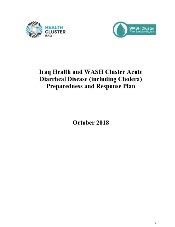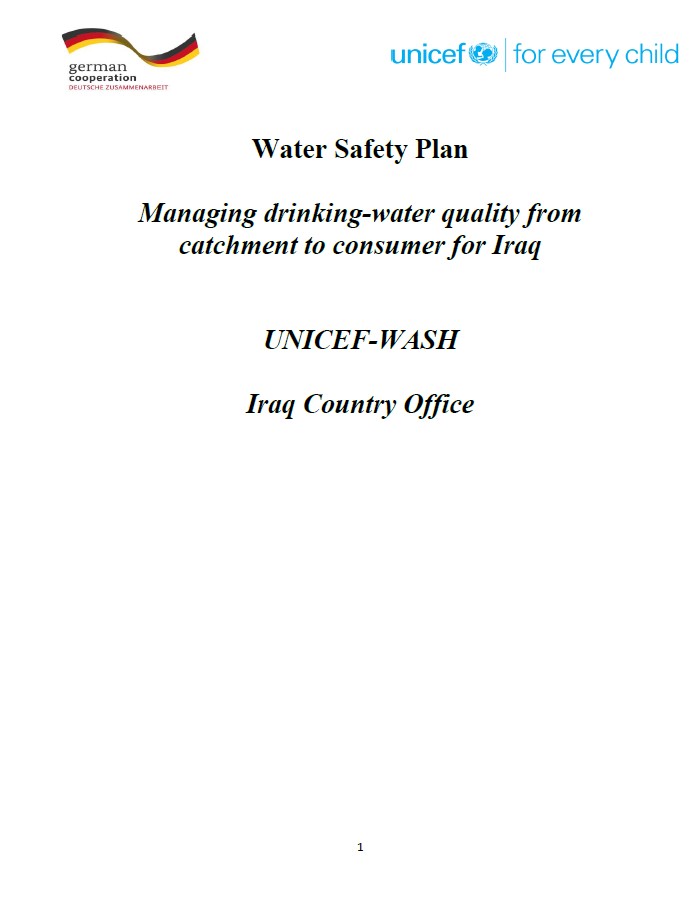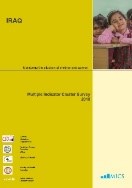Iraq
 Cholera is endemic in Iraq, with periodic outbreaks recorded since 1966. Outbreaks typically follow seasonal increase in water contamination starting from July, with an increase in acute diarrhea (AD) and reach the peak in September. The most recent cholera outbreak was officially declared on 15 September 2015 by the Ministry of Health (MoH). The cases were mainly from eleven districts within Babylon, Baghdad, Diwaniya and Muthanna governorates, however all the governorates reported laboratory-confirmed cases (Sulaimaniya reported only two imported cases). Furthermore, several neighboring countries (Kuwait, Bahrain, Iran and Oman) reported a small number of cases linked to recent travel history in Iraq (reliefweb). There is always a risk that cholera outbreak will occur in Iraq. By the 2014-2017 conflict against ISIL, particularly those who were displaced and whose lives and livelihoods were uprooted and destroyed. Many people are unable to independently meet their basic needs like food and shelter. They lack access to services such as health care, potable water, and improved sanitation (OCHA).
Cholera is endemic in Iraq, with periodic outbreaks recorded since 1966. Outbreaks typically follow seasonal increase in water contamination starting from July, with an increase in acute diarrhea (AD) and reach the peak in September. The most recent cholera outbreak was officially declared on 15 September 2015 by the Ministry of Health (MoH). The cases were mainly from eleven districts within Babylon, Baghdad, Diwaniya and Muthanna governorates, however all the governorates reported laboratory-confirmed cases (Sulaimaniya reported only two imported cases). Furthermore, several neighboring countries (Kuwait, Bahrain, Iran and Oman) reported a small number of cases linked to recent travel history in Iraq (reliefweb). There is always a risk that cholera outbreak will occur in Iraq. By the 2014-2017 conflict against ISIL, particularly those who were displaced and whose lives and livelihoods were uprooted and destroyed. Many people are unable to independently meet their basic needs like food and shelter. They lack access to services such as health care, potable water, and improved sanitation (OCHA).
Last situation reports
- UNICEF Humanitarian Situation Report
- WHO Situation Report
- OCHA Situation Report
- Joint Monitoring Programme for Water Supply, Sanitation and Hygiene Data
- WASH Cluster
- Health Cluster
|
Overall situation |
WASH situation |
Community surveys |
|
|
Water Safety Plan: Managing drinking-water quality from catchment to consumer for Iraq (only available in PDF below)
|
Multiple Indicator Cluster Survey (MICS) 2018
|
|
TOR of Cholera Taskforce (only available in PDF below)
|
Knowledge Attitude and Practice Survey Report Sheikhan IDP camp 2015
|





